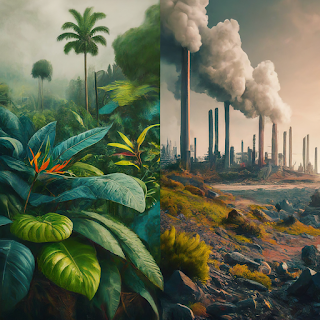by Tuba Toyci
Sustainability and overconsumption are two contradictory concepts that are gaining increasing importance today. Finding the balance between these two concepts is of critical importance for the future of our planet and humanity.
Sustainability refers to a balanced approach to the use of natural resources. While consuming today’s resources to meet the needs of future generations, it is essential to ensure the continuity of natural systems and ecosystems. Sustainability should be addressed with its economic, social and environmental dimensions. Economically, sustainability includes long-term profitability and efficient use of resources. Socially, it is important to meet everyone’s basic needs and improve the well-being of society. Environmentally, it is necessary to protect natural resources, maintain biodiversity and combat environmental problems such as climate change.
However, this ideal of sustainability often comes up against overconsumption. Overconsumption means excessive use and waste of resources. The rapid increase in consumption habits leads to excessive use of natural resources and environmental destruction. Overconsumption can also increase social and economic inequalities because it can lead to inequities in the distribution of resources.
Maintaining the balance between sustainability and overconsumption is of vital importance for the future of our planet and humanity. In order to achieve this balance, we all need to take responsibility individually and socially. It is important to take action now to leave a livable world to future generations.

Comments
Post a Comment